The Biden Administration Cuts and Runs From Haiti
After more than a century bleeding the country, installing and abetting corrupt dictators, and suppressing democracy, the US government now advises Americans to flee.
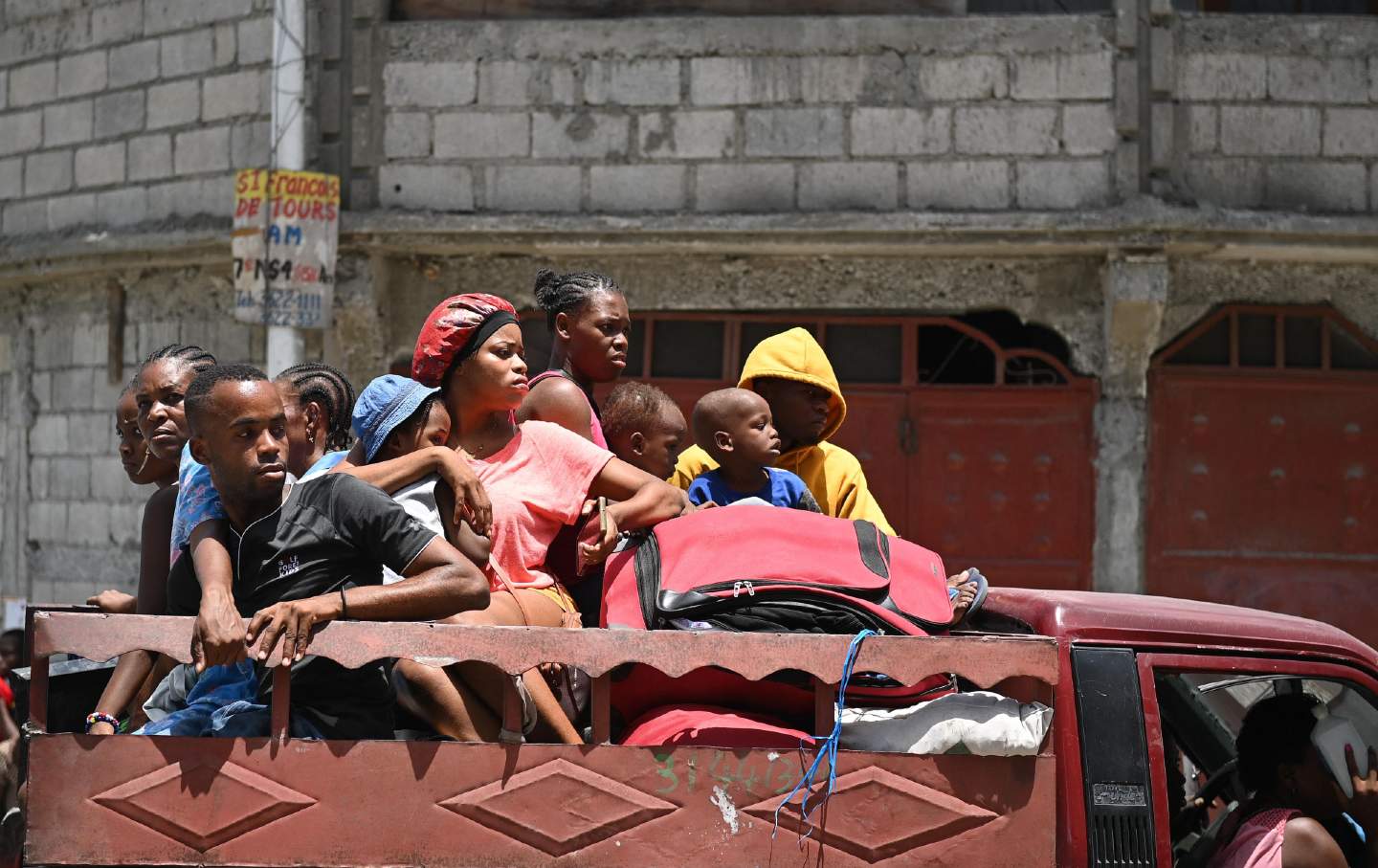
We could begin with the list of gross human rights violations and massacres that have taken place in Haiti just in the past weeks, but there have been so many that the recitation—of neighborhoods decimated, children kidnapped and killed, massacres perpetrated, houses and businesses burned, women and girls raped, journalists and other outspoken commentators assassinated, possessions stolen, lives destroyed, families made homeless—has become over-familiar and even tedious to those who aren’t watching closely and who haven’t experienced what’s happening there first hand or through relatives and friends. Ongoing bad news inures people to tragedy.
Haiti is indeed cursed, but not, as the late Pat Robertson once claimed, because its revolutionary leaders entered into “a pact with the devil” but because it has a neighbor to the north that has exploited its resources, created a Haitian government that runs on corruption, helped destroy the country’s idiosyncratic but workable agricultural economy (now long defunct), and imposed and then interfered in election after election, extracting a popular leader here and defanging another there, while empowering the worst, and simultaneously undermining Haitians’ belief in democratic elections.
This unbalanced and depraved relationship began with Haiti’s successful slave revolution that erupted in 1791. The rise to power of the formerly enslaved population was taken as both an affront and a menace to the country’s slave-holding neighbor to the north. The sick and destructive relationship has continued unabated since then, with the people of Haiti left to suffer from the evil wrought by their leaders and foreign masters.
And no, I am not exaggerating the role that France and then the US played in Haiti’s fate, and that the US in particular still plays. People think: “Haiti… what’s the big deal? What are the gangs and the people who run them fighting over? Why does the U.S. care at all?”
Not surprisingly, they are fighting over money and who gets access to the many ways of making it. Plenty of money can be and has been made by controlling Haiti. First of all, if you have connections in Haiti, you don’t have to compete for market share. So you can provide, say, all the cement in the country. Very lucrative. Also, the state has been almost entirely privatized. You can run communications networks and providers. You can run the state energy system (now pretty much defunct, because of internecine battles and lack of maintenance).
If you run the government or are “government adjacent,” you can charge taxes at the ports and customs that go into your own pockets, not the nation’s coffers. Ditto the country’s formerly gigantic and freewheeling daily markets. You can also import contraband, like weapons and drugs, and exact huge fees for this service. You can control mining in the countryside, including gold, silver, copper, and iridium. You can run the sugar business, the breweries; you can run the very valuable lottery system. You can be part of a cartel’s drug-trafficking system, which uses Haiti as a transshipment station for drugs on the way to the US and elsewhere. You can steal the $2 billion that accrued when Venezuela subsidized Haitian oil imports, all of which was supposed to go toward Haitian social programs but strangely disappeared—a long story.
Because of the stalemate in power created when President Jovenel Moise was assassinated in July 2021—a grisly, well-organized murder for which no one in Haiti has yet been charged (although an American court has sentenced one figure to life in prison)—power-seekers within government and political and business circles have been vying for spoils left unguarded. This competition has exposed various rifts in the political class, and turned the country into a literal battlefield where each faction’s armed gangs are vying with the others for hegemony. As a Haitian friend of mine says, “The political actors need the gangs. The problem is systemic.” (The arms and ammunition, by the way, mostly come into Haiti via Miami, where a US embargo on such trade with Haiti has failed to stanch the flow.)
In the past two weeks, the gangs have emptied one important neighborhood in Port-au-Prince , and disturbing rumors on Haitian social media reported that recent stepped up attacks will soon extend to the more middle-class leafy inner suburbs of the capital. Meanwhile, on Wednesday the US government advised all American citizens to leave the country as soon as possible, even going so far as to tell people to book seats on flights immediately, and to be careful on approaches to the airport, because of gang activity, and listing airlines with availability. The UN Security Council has a planned meeting on September 15 to consider a resolution for intervention in Haiti.
All of this has led Haitians who are watching the scenario unfold to assume that the recent escalation in gang activity has been timed to influence the Security Council meeting, during which the Haitian government, such as it is, hopes an intervention will be approved. The worse the violence, so goes this thinking, the more likely the intervention. For months, this thinking goes, the gangs’ activities have been ramping up for this reason.
A recent visit to evaluate the logistics of a proposed Kenyan-led mini-intervention force of 1,000 police officers from that nation, an idea supported by the US, ended with a proposal that the Kenyans protect airports, ports, energy and communications infrastructure, and other important government buildings, without deliberately engaging with the gangs. Many of the sites deemed worthy of protection, however, are either already in the hands of gangs or surrounded by gang activity.
Naturally many Haitians who have been suffering under the gangsters’ rule are also hoping for an outside intervention—even though it goes against the grain of national feeling in Haiti, where the white man is not viewed with respect, much less credulity, and where independence from outside rule is prized.
It is the assumption of Haitians that an intervention won’t be good for them, but possibly it will be better than what they have now, which is—again, literally—worse than nothing. About the best I’ve heard any Haitian say about the possibility of a foreign intervention is this: “Intervention without a real transition government [i.e., one not disqualified immediately by the participation of de facto prime minister Ariel Henry and his consiglieri] will just consolidate and legitimize the current government. Gangs will fold temporarily, ready to control voters when the time comes.”
Popular
“swipe left below to view more authors”Swipe →For Haiti, the Biden presidency has been a total failure. A president who in the 1990s told talk show host Charlie Rose that it wouldn’t matter if Haiti (and by inference, all Haitians) disappeared under the sea seems to have continued along that line of thought. In his first year as president, Biden expelled over 20,000 Haitian refugees—more than all three presidents before him combined. The expulsion flights declined in 2023, although the administration did return 55 Haitians to Haiti in August, despite a no-travel advisory from the State Department for American citizens.
At the same time, the Biden administration has offered a special immigration program to Haitians (called “humanitarian parole,” for some reason), as well as Cubans, Nicaraguans, and Venezuelans—the choice of countries permitted to participate is illuminating. A Haitian passport, a US sponsor, and background checks are required, and if these preconditions are met, a certain number of Haitians will be allowed to come to the US for a period of two years “for urgent humanitarian reasons or significant public benefit.”
Obviously these requirements limit the kinds of Haitians who may make use of the program, while exacerbating the brain drain Haiti has been experiencing consistently over the past decade of US-supported and -dominated Haitian misrule in the country. In addition, many Haitian police officers whose presence is sorely needed in Port-au-Prince and elsewhere to combat gang rule have already taken the opportunity to leave the country under Biden’s special program. Haiti’s other 11.5 million people are left to fend for themselves. (This program is also the subject of GOP anti-immigrant ire, and its fate may well be decided by a court in Texas, in a case that goes to trial this week.)
What is certain is that many more people will die while Haiti awaits three possible outcomes after the upcoming UN Security Council meeting:
1. A US/UN sanctioned intervention that will try to stall the gangs’ depredations at least momentarily, while preparations for sham elections proceed. Or…
2. An end to American and UN support for the de facto prime minister, and the rise to power of a democratic interim government backed by international actors, which might lead to fair elections. Or…
3. (By far the most likely): Nothing.
Followed by the further destruction of Haiti’s culture, infrastructure, and people. And of the nation itself, while the world looks on—not with horror and dismay, but with acquiescent distaste.
Disobey authoritarians, support The Nation
Over the past year you’ve read Nation writers like Elie Mystal, Kaveh Akbar, John Nichols, Joan Walsh, Bryce Covert, Dave Zirin, Jeet Heer, Michael T. Klare, Katha Pollitt, Amy Littlefield, Gregg Gonsalves, and Sasha Abramsky take on the Trump family’s corruption, set the record straight about Robert F. Kennedy Jr.’s catastrophic Make America Healthy Again movement, survey the fallout and human cost of the DOGE wrecking ball, anticipate the Supreme Court’s dangerous antidemocratic rulings, and amplify successful tactics of resistance on the streets and in Congress.
We publish these stories because when members of our communities are being abducted, household debt is climbing, and AI data centers are causing water and electricity shortages, we have a duty as journalists to do all we can to inform the public.
In 2026, our aim is to do more than ever before—but we need your support to make that happen.
Through December 31, a generous donor will match all donations up to $75,000. That means that your contribution will be doubled, dollar for dollar. If we hit the full match, we’ll be starting 2026 with $150,000 to invest in the stories that impact real people’s lives—the kinds of stories that billionaire-owned, corporate-backed outlets aren’t covering.
With your support, our team will publish major stories that the president and his allies won’t want you to read. We’ll cover the emerging military-tech industrial complex and matters of war, peace, and surveillance, as well as the affordability crisis, hunger, housing, healthcare, the environment, attacks on reproductive rights, and much more. At the same time, we’ll imagine alternatives to Trumpian rule and uplift efforts to create a better world, here and now.
While your gift has twice the impact, I’m asking you to support The Nation with a donation today. You’ll empower the journalists, editors, and fact-checkers best equipped to hold this authoritarian administration to account.
I hope you won’t miss this moment—donate to The Nation today.
Onward,
Katrina vanden Heuvel
Editor and publisher, The Nation
More from Amy Wilentz

JD Vance’s Slanders Are Far From the Worst Thing the US Has Done to Haitians JD Vance’s Slanders Are Far From the Worst Thing the US Has Done to Haitians
After years of strenuously ignoring the country's agony, Secretary of State Antony Blinken finally visited Haiti last week. For five hours.
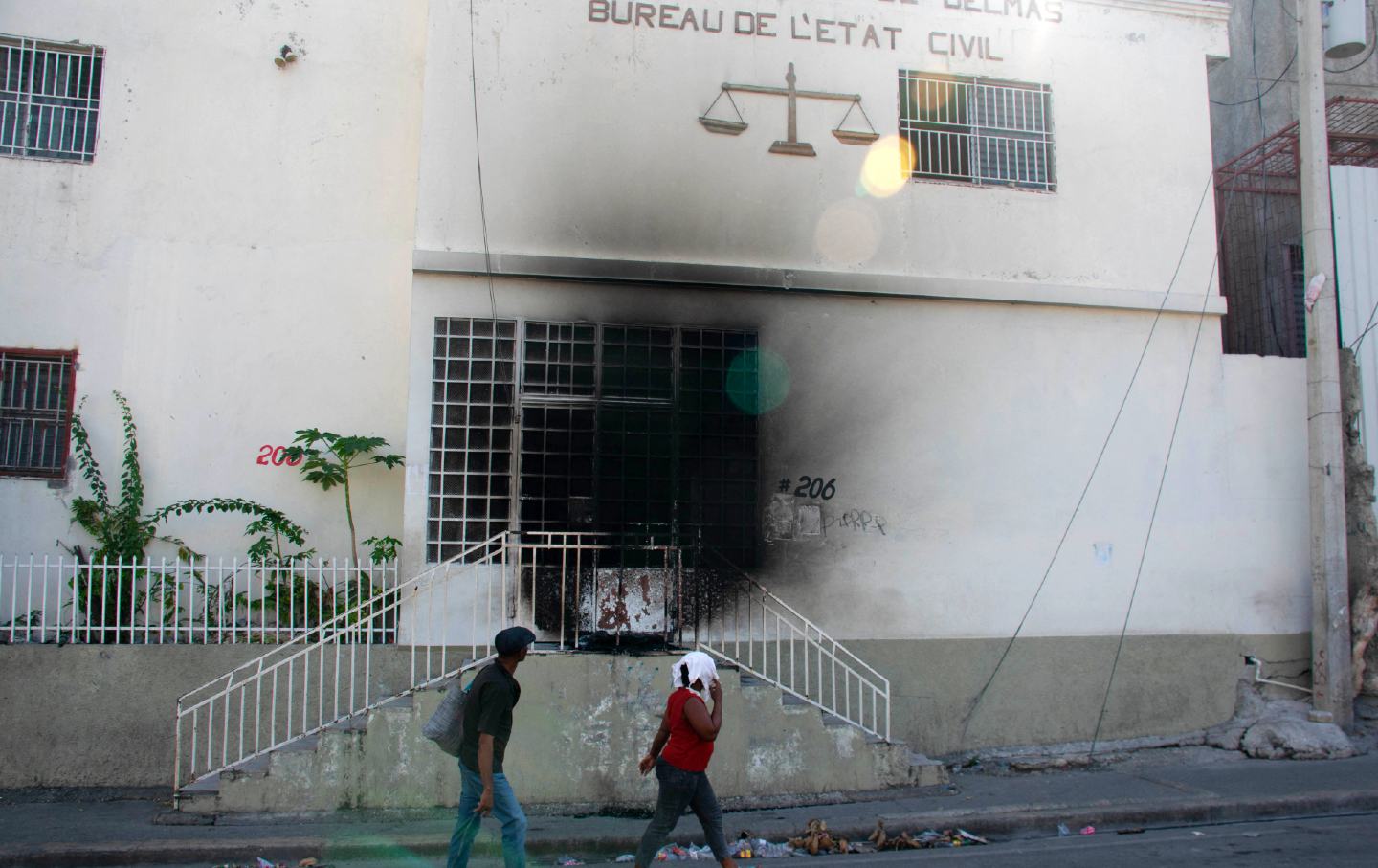
Haiti’s Hour of Deliverance or Despair Haiti’s Hour of Deliverance or Despair
Gangs assert their patriotism while the latest international rescue plan teeters between failure and a possible way forward.
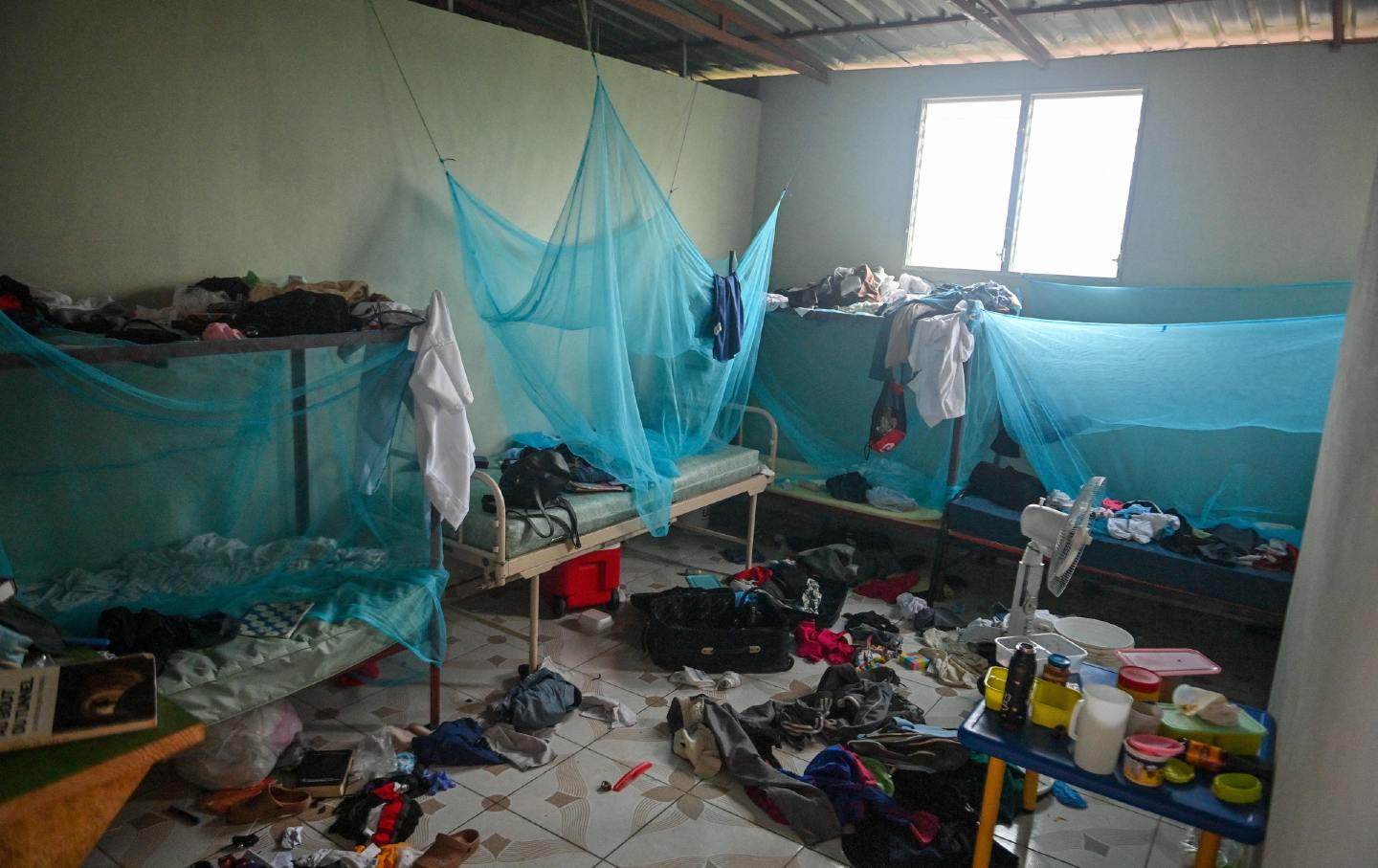
Why Is the US Paying Kenya to Clean Up the Mess We Made in Haiti? Why Is the US Paying Kenya to Clean Up the Mess We Made in Haiti?
The Biden administration likes to talk about democracy, but when it comes to the disaster unfolding a few hundred miles from Miami, democracy is apparently far too dangerous.
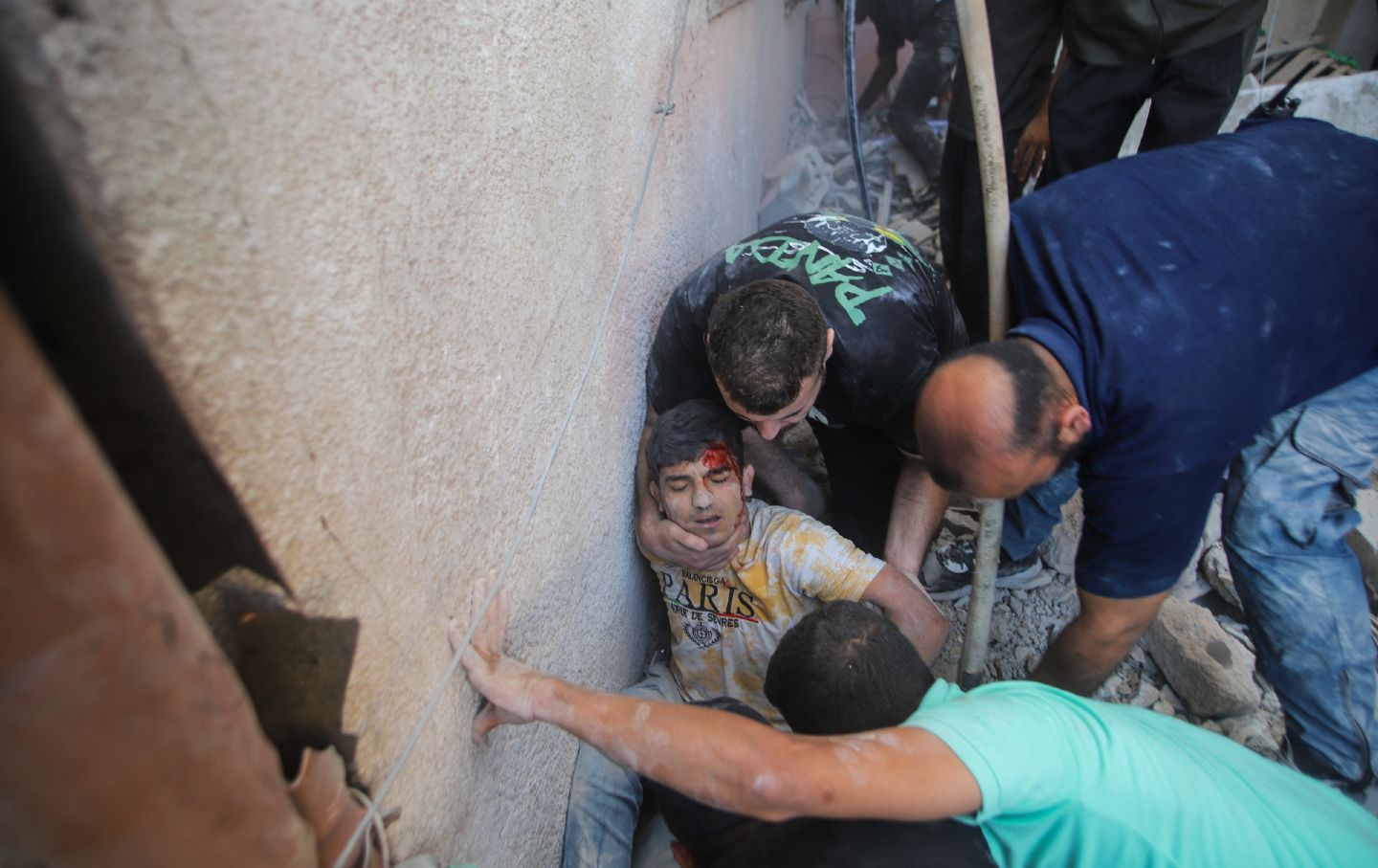
In Gaza They Don’t Even Bother to Call It Peace In Gaza They Don’t Even Bother to Call It Peace
For Netanyahu, as for Hamas, the life of a child born into the opposing “nation” has no value.
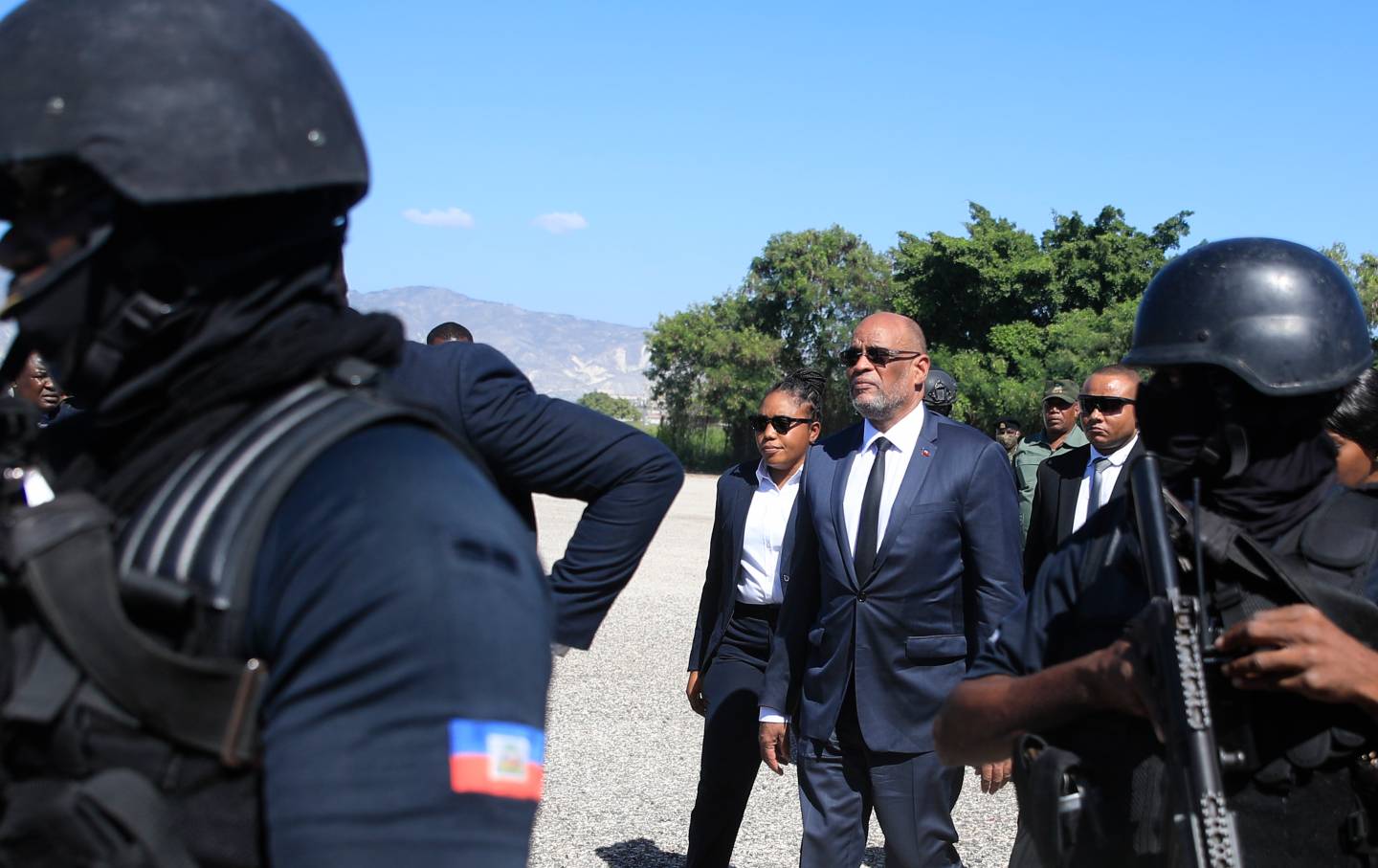
Haiti, April 2023: Soon There Will Be No One Left to Kidnap Haiti, April 2023: Soon There Will Be No One Left to Kidnap
The deadly consequences of the Biden administration’s policy of no policy.
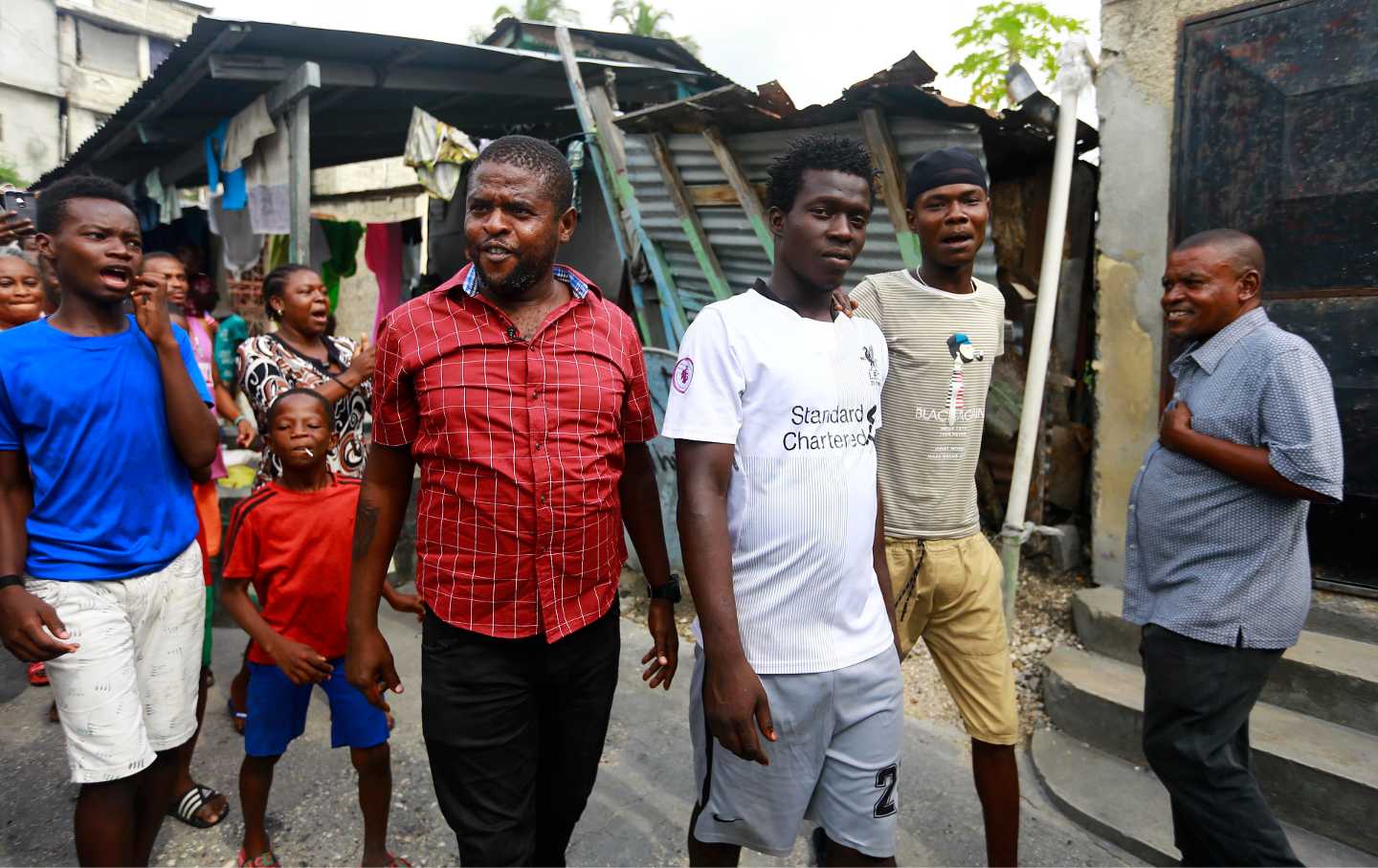
Will the Haitian Crisis Lead to Yet Another Military Intervention? Will the Haitian Crisis Lead to Yet Another Military Intervention?
With gangs holding the country hostage, and violence spinning out of control, the US and the UN play pass the parcel.


